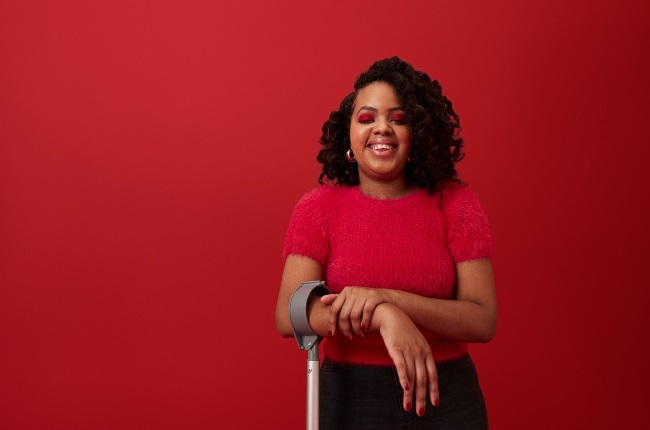
- When meeting someone with a disability, it's possible to point out how inspiring they are.
- Such words and many more others can make those with a disability uncomfortable.
- This woman shares why dishing out words of encouragement may not be the correct thing.
"You are so inspiring" is a comment that makes me uncomfortable when it is said by a person who hardly knows me. Does going about my day warrant such a compliment?
I know it comes from a good place, but I can't help but to think the person dishing out such platitudes feels pity for me because of the way I walk, owing to my physical disability.
My physical disability makes movement strenuous and sometimes even painful. As a result, I become tired quickly and I am unable to walk far distances. This renders day-to-day tasks difficult.
I understand that when people see me walking around the shops or at the movies, they can sense just how challenging my life is, which sometimes prompts them to approach me with words of encouragement or praise.
While I appreciate their words, it can make me feel inferior.
I remember being in a store and going to the till to pay for my items and the cashier casually told me I was inspiring. I politely thanked her but could not wait to leave the store because I felt incredibly uncomfortable.
Did her statement stem from the mere fact I had walked around the shop limping before I approached her to pay for my chosen goods? Or was it that she spews these words out to all her customers? In retrospect, I could have asked her why she had felt this way about me.
READ MORE | These vibrators and dildos assist people with limited hand functionality to self-pleasure
Regardless, at the time, I felt pitied and shamed by what she had said to me. While I cannot be sure where the cashier's comment came from, I can only assume ableism played a role in its conception.
Ableism is dangerous because it is where disabled people are considered 'less than' their abled-bodied counterparts.
This invites harmful misconceptions and stereotypes.
While buying food from a store is a mundane occurrence to me, the cashier might see things differently because of her incorrect assumption of people who live with disabilities.
In addition, because of the inaccessibility of most public places, many disabled people cannot simply go to a store and buy what they need.
READ MORE | 'Some say it's dishonest, but I choose not to mention my disability on dating apps - Here's why'
This fuels the incorrect assumption that people with disabilities cannot do their own shopping. As a result, when disabled people are seen buying items at a store, it is considered an achievement, rather than an everyday occurrence, and consequently people label it as "inspiring".
We can combat ableism by including disabled people into society by making facilities and public places more accessible, inviting them into the conversation around all aspects of daily living and by working and learning together. This way, disability will be more normalised and accepted.
It might seem like a lot of work, but as the old saying goes: "To climb a staircase, one must start with a single step."



 Publications
Publications
 Partners
Partners











